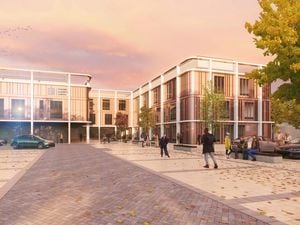If it ain’t broke...
CHANGE. It is one of the biggest dilemmas facing any politician. On one hand you know that change is nearly always unpopular and of course in a democracy you usually want to do what you perceive as having majority support. On the other hand you owe your constituents your judgement and you know that without some change communities get overtaken by an ever changing world and suffer as a result.

What’s the right answer? It has to be to use your critical faculties and do what you genuinely think is right for Guernsey. If that brings you some opprobrium because it involves change then so be it. Deputies sit in the States as delegates, to use their judgement, not to be some glorified weathervane of public opinion. Otherwise we would have government by plebiscite. Heaven forfend.
Put simply, the status quo is often seen as the safe option because if it wasn’t ‘surely we wouldn’t be doing it now’. By contrast anything new is seen as dangerous and sometimes even immoral. That’s not logical of course. Often what we are doing now is clearly worse than what we could do. Other times the status quo was once the right solution but has been overtaken either by changing events or social attitudes. But still we have a habit of clinging to the familiar like a comfort blanket.
Enough theorising. Here are half a dozen concrete examples.
1. The L’Ancresse anti-tank wall. Now that really is a concrete example. Leaving aside the fears over possible flooding I know many who want the wall retained simply because it is familiar. It is an integral part of the L’Ancresse beach they know. By contrast my dad, who like me was a real Vale boy, absolutely loved the bay as it was before the Occupation. I can remember him complaining bitterly about what the Germans had done to his beloved L’Ancresse. What did he and today’s campaigners have in common [no pun intended]? A love of the familiar.
2. Changing tack, I think there is a huge logic in the campaign to have problem, personal users of damaging substances regarded as people with medical issues rather than criminals. After all we would be shocked if alcoholics were criminalised or locked up. I suspect that if we changed our social policy in this respect, and followed many other communities in a more rational approach to drug use, not only could it be more effective in reducing harm, but it would soon be regarded as normal. So the problem for campaigners is less the strength of their arguments and more our inherent fear of change.
3. One example which shows how exaggerated that fear can be is in respect to Sunday trading/drinking. Not so long ago both were severely restricted and there were dire warnings that if we tinkered with the law it would bring dreadful consequences for the Guernsey way of life. We liberalised and still await the end of civilisation as we know it.
4. Of course it’s not all about liberalisation. Sometimes social changes can go the other way. I can still remember the warnings of the status quo supporters when Guernsey banned smoking in enclosed public spaces. Had we taken leave of our senses? There would be such massive public disobedience that our police force wouldn’t be able to cope. The French would certainly boycott an island where they couldn’t puff a Gauloises over their moules frites. All nonsense of course, and today our inherent resistance to change would work the other way. Any deputy fancy bringing a motion to allow smoking in restaurants and cafes/pubs again?
5. Then there are changes to traffic arrangements. For some reason these seem to generate even more resistance than other forms of change. I well remember the huge objections to pedestrianising Market Square/Street. At the time my older colleagues recounted to me the even bigger resistance that there had been when cars had been stopped from driving through the High Street, Smith Street and Upper Pollet. Everybody was convinced it would destroy trade and turn the area into a commercial desert with tumbleweed blowing through the streets. Yet today Boots probably enjoys one of the biggest footfalls in Guernsey.
6. Then of course there is education. I still believe those advocating for all-ability secondary schools won that argument in 2001. So why did they lose the vote? Largely because deputies were split three ways. Those who supported selection. Those who didn’t. And those who had no clear view. It was the latter group which held the balance in the vote and largely they opted for the comfortable safety blanket of going with the status quo.
Of course I am definitely not saying that change is always good. In some ways I agree with Ebenezer Le Page when he opined ‘most improvements in Guernsey in recent years have been improvements for the worse’. It’s just that some change is essential.
As I said at the start it really is a political dilemma. Change by its nature is a risky old business. It brings new threats, new challenges, new problems. In fact it’s hard to think of anything much more dangerous than change, except of course never changing while the world around you does.





